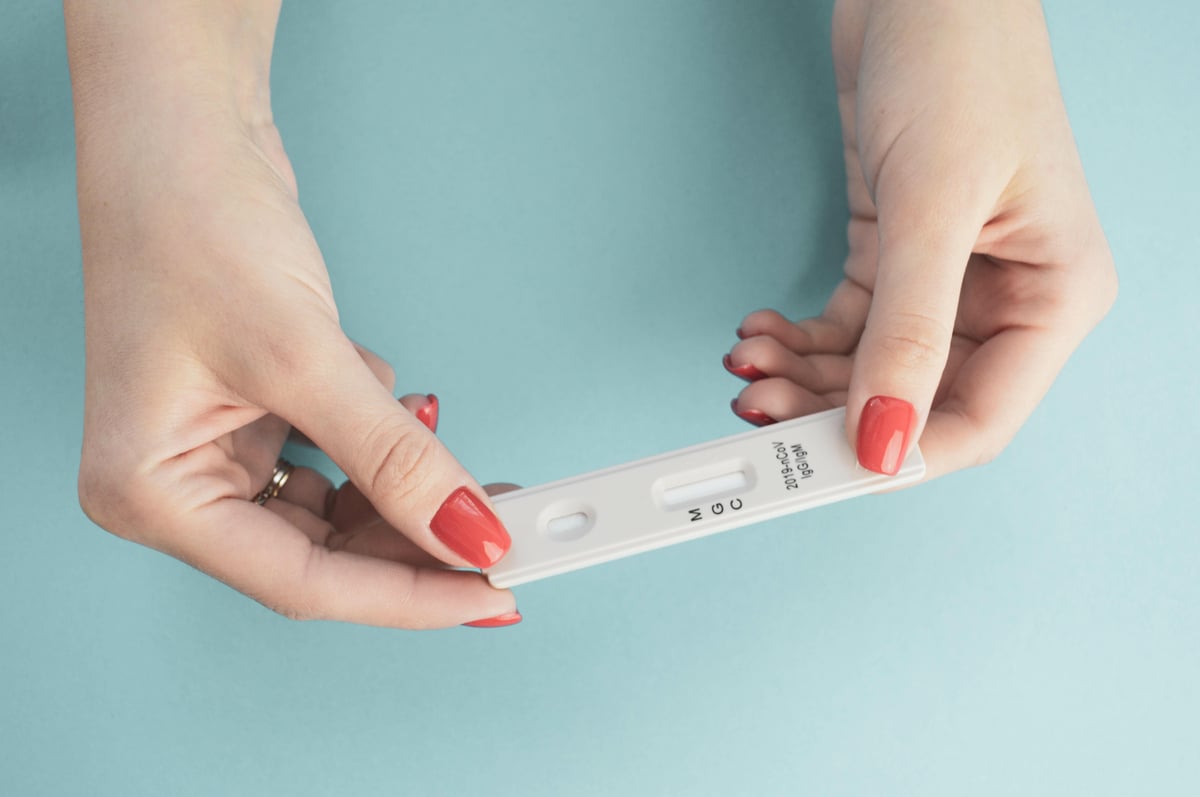Three At-Home COVID-19 Tests Needed to Confirm Negative Result, FDA Says

FRIDAY, Aug. 12, 2022 (HealthDay News) -- People who test at home after being exposed to COVID-19 should take the test three, not two, times to make sure they are not infected, the U.S. Food and Drug Administration said Thursday.
In issuing its new safety communication, the agency said the latest research suggests that taking just two antigen tests misses too many infections and could result in people inadvertently spreading the virus to others, especially if they do not develop symptoms.
In its announcement, the agency pointed to a preliminary government study that showed adding a third test improved accuracy from 62 to 79 percent.
"The FDA's new recommendations for at-home COVID-19 antigen tests underscore the importance of repeat testing after a negative test result in order to increase the chances of detecting an infection," Jeff Shuren, M.D., director of the FDA Center for Devices and Radiological Health, said in an agency news release on the recommendation.
The FDA recommended taking the three tests every 48 hours, until you have a negative test and no symptoms. The recommendations were made after the FDA collaborated with government and academic partners to assess the performance of at-home antigen tests, Shuren said.
"Throughout the pandemic, we have continued to learn about COVID-19 and the impact of variants on the performance of diagnostic tests designed to detect the virus, and we are committed to keeping the public updated so they can make the most informed health care decisions," Shuren noted.
Related Posts
TKA Complications Increased for Sickle Cell Disease Patients
FRIDAY, April 21, 2023 (HealthDay News) -- Patients with sickle cell disease...
Impact of Racism Could Slow Recovery After Heart Attack
TUESDAY, Nov. 1, 2022 (HealthDay News) -- Discrimination doesn’t just cause...
Extirpar los ovarios durante una histerectomía antes de los 50 puede conllevar riesgos para la salud
JUEVES, 9 de diciembre de 2021 (HealthDay News) -- Una investigación reciente...
GLP-1 RA Use May Up Risk for Gallbladder, Biliary Diseases
THURSDAY, March 31, 2022 (HealthDay News) -- Use of glucagon-like peptide-1...
